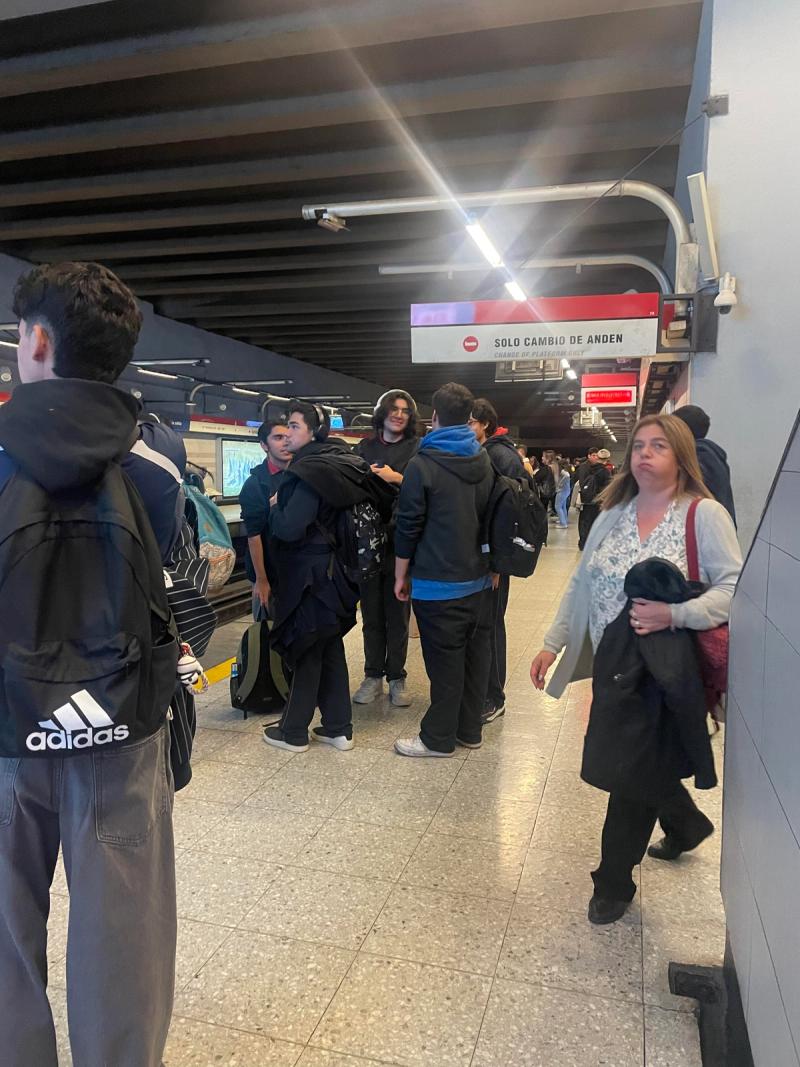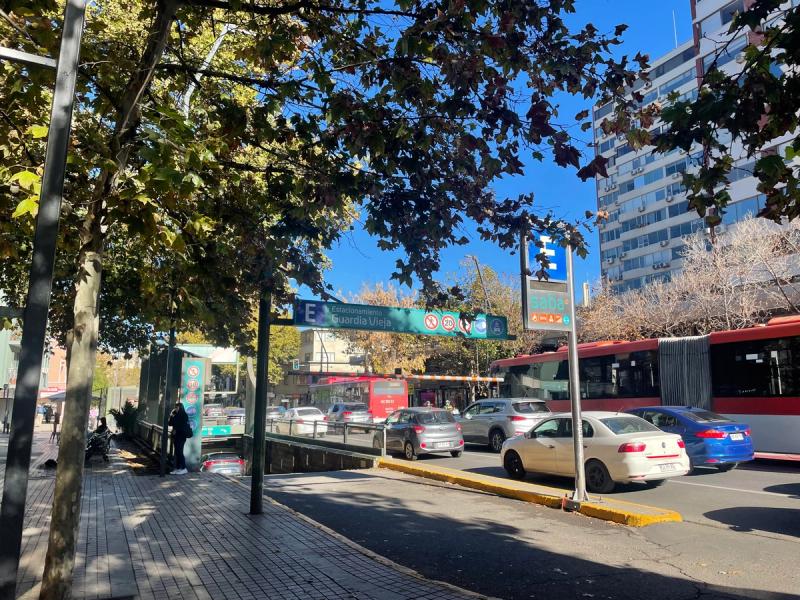Urban Mobility and Climate Justice: Insights from Santiago's Transportation Transformation

A Scholar-in-Residence travels to Chile to investigate the climate politics of public transportation.
Dr. Ariana Salas Castillo is a postdoctoral researcher at Columbia University's Climate School and recent Scholar in Residence at the Columbia Global Center in Santiago, Chile. This article is part of a Columbia Global Scholars-in-Residence series, which celebrates 12 Scholars-in-Residence tackling local challenges and global questions.
How is it that Chile — long known for embracing market-driven policies — has developed one of Latin America's most progressive public transportation systems, while Costa Rica — celebrated globally for its environmental leadership — struggles with a fragmented, polluting urban bus network? This paradox has been at the heart of Dr. Ariana Salas Castillo's research over the years, which explores how public transportation is far more than a technical issue of moving people efficiently. It is a political matter with profound implications for climate action, social equity, and public health in rapidly urbanizing regions.
Dr. Salas Castillo recently returned to New York City after three productive weeks in Chile as a Columbia Global Center Scholar in Residence in Santiago. "Being there allows you to understand nuances that simply aren't apparent from reading reports or analyzing data remotely," she explains. "There are little things that make sense only when you experience them firsthand, like waiting for a bus that doesn't stop, or seeing how transit connects communities."
Growing up in Costa Rica, Dr. Salas Castillo observed the disconnect between her country's celebrated environmental policies and its chaotic urban transportation. "Costa Rica is known worldwide as an environmental leader. We reversed deforestation and created impressive protected areas," she notes. "But our urban transportation is inefficient, constraining mobility for many people who don't have access to cars."
Meanwhile, Santiago has transformed from one of Latin America's most polluted urban centers in the 1970s and 80s to a city with an integrated transportation system prioritizing accessibility and energy efficiency. Today, Santiago features an extensive, expanding metro network and improving bus system that provides reliable mobility across much of the city.

"I was able to take the subway late at night, and it always felt safe because it was crowded. There were always people," Dr. Salas Castillo observes. "This creates a sense of autonomy and security that is essential for a functioning public transportation system."
How did these contrasting outcomes emerge? Dr. Salas Castillo's research suggests the answer lies in institutional capacity and political dynamics rather than environmental values alone. "I've found that environmental leadership doesn't automatically translate to progressive transportation policy," she explains. "In Costa Rica, despite our environmental rhetoric, weak institutions allowed bus operators to embed their power in the political system, making reforms nearly impossible."
Chile's strong executive enabled policymakers to push through a difficult reform of the bus transportation system over the resistance from politically powerful bus operators worried about being displaced. At the time, the reform was characterized as the worst public policy ever implemented because of its equity implications for bus operators and users. Now, it is considered a regional success. "It's really about having institutions that can specifically focus on and enforce transportation policies, even when powerful interest groups push back," she adds.

The Columbia Global Center in Santiago proved instrumental to her research. "They connected me with key contacts I couldn't have reached otherwise," Dr. Salas Castillo says. "For example, I was able to speak with the former director of Chile's National Institute of Statistics who helped me navigate data sources that weren't clearly accessible online."
Perhaps most significant is an emerging collaboration facilitated by the Global Center — a joint report with Santiago's Metropolitan Directory of Public Transportation examining equity and public health implications of recent transportation improvements. "Without the Columbia Global Center, this collaboration would be much harder to establish," she explains. "They understand both Columbia's institutional processes and how Chilean institutions work, creating a vital bridge between them."
As Chile prepares for elections in November, her work takes on added relevance. "Our report could help demonstrate the concrete health, environmental, and social benefits of continued investment in public transportation," Dr. Salas Castillo notes, "and potentially influence policy continuity despite political transitions."
Back in New York, Dr. Salas Castillo continues her work at Columbia's Climate School, bridging theory and practice to contribute to more just, sustainable urban futures. Her research ultimately points to a fundamental insight: transforming urban transportation requires both thoughtful planning and political action.
Still curious? Continue reading what the Santiago Center is thinking + doing.
- News: Following the snake: What I learned about leadership from Mapuche women
- News: Columbia’s National Center for Disaster Preparedness, Santiago Center, and Chilean Partners Collaborate on Municipal Climate Action Plans
- News: Santiago Center and Momento Ciudadano Team up to Produce Civic Education Manual for Schools